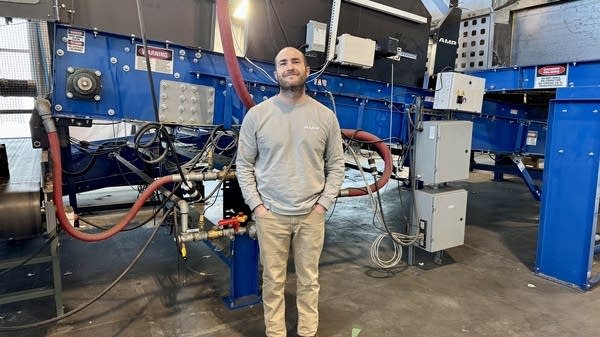Can AI take your coding job?
Microsoft recently laid off about 3% of its workforce — some 6,000 people. A big chunk of those were reportedly software engineers, aka coders.

Microsoft laid off about 3% of its workforce last week, some 6,000 employees in total. A big chunk of those workers were software engineers, aka coders, according to Bloomberg.
At the firm’s big annual developer conference this week, Microsoft announced a suite of new artificial intelligence products, including what it calls an “asynchronous coding agent” that can fix bugs, add features and do a lot of other programming tasks.
Now, correlation is not causation, and tech layoffs happen all the time. But, if the robot revolution is coming, it may come for the coders first.
Before you start Googling “How quickly can I become a professional welder,” we really haven’t seen hard data showing AI is actually taking people’s jobs en masse. But it is a good idea to keep an eye on those tech layoffs.
“What happens to coding and software engineering is a bellwether,” said Molly Kinder, a fellow at the Brookings Institution.
She said software engineering is the first occupation to use this technology en masse. And if AI is pretty good at writing a college history paper or making an image of the pope in a funny coat, it’s really good at programming.
In an email, a Microsoft spokesperson said the organizational changes are necessary to best position the company for success. Still, AI already writes up to 30% of Microsoft’s code.
Kinder from Brookings said that whole idea of software engineering as the stable career of the present and future is so last decade.
“I recently looked back at the 2015 Obama White House AI and automation report. One of their recommendations is, everyone should learn coding,” she said. “And you know, you cringe reading it now.”
AI writes about 50 to 60% of Avijit Ghosh’s code — he’s with the open source AI company Hugging Face. But he still gives his work a human polish.
“I still do like to go through everything in the code, because I have often had AI-generated code silently fail,” he said.
Ghosh said he’s unsure whether AI will actually outright replace most programmers. But he does worry about what happens to the future ability of humans to be good coders when robots do most of the coding.
“It is very easy for a bot to give, like, a code that will take more amount of time than something elegant and can be thought of as a more beautiful solution,” he said.
And the more you outsource to AI, the less practice the human gets.
“So that, I worry, is changing, you know, people are using these models as crutches,” Ghosh said.
He isn’t just worried about how AI might make lazier coders — he worries it might make us all lazier at our jobs.













